Search the Special Collections and Archives Portal
Search Results
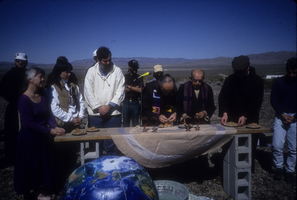
Louis Vitale, Dom Hélder Câmara, and numerous unidentified protestors at the Nevada Test Site: photographic slide
Date
Archival Collection
Description
From the Sister Klaryta Antoszewska Photograph Collection (PH-00352). Dom Hélder Câmara (third from the right) was the Archbishop of Brazil. Louis Vitale (fourth from the right) was a member of the Order of Friars Minor (O.F.M.).
Image

Corbin Harney at a protest at the Nevada Test Site: photographic slide
Date
Archival Collection
Description
From the Sister Klaryta Antoszewska Photograph Collection (PH-00352). Corbin Harney is a West Shoshone Indian. The banner behind Harney reads: "Peace In the Desert". (n.d)
Image
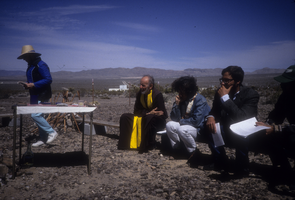
Louis Vitale and unidentified protestors at the Nevada Test Site: photographic slide
Date
Archival Collection
Description
From the Sister Klaryta Antoszewska Photograph Collection (PH-00352). Louis Vitale was a member of the Order of Friars Minor (O.F.M.). (n.d.)
Image
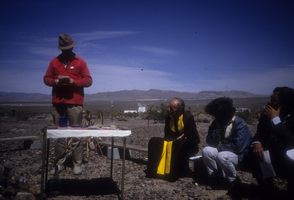
Louis Vitale and unidentified protestors on Holy Thursday at the Nevada Test Site: photographic slide
Date
Archival Collection
Description
From the Sister Klaryta Antoszewska Photograph Collection (PH-00352). (n.d.)
Image
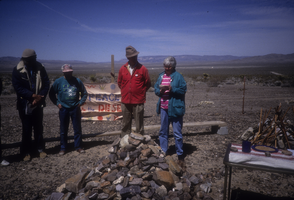
Unidentified protestors on Holy Thursday at the Nevada Test Site: photographic slide
Date
Archival Collection
Description
From the Sister Klaryta Antoszewska Photograph Collection (PH-00352). A banner fixed to a crucifix reads, "Peace in the Desert." (n.d.)
Image
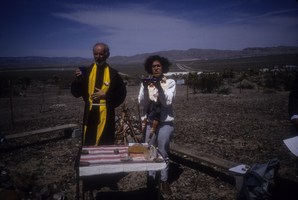
Louis Vitale and Julia Occhiogrosso at the Nevada Test Site: photographic slide
Date
Archival Collection
Description
From the Sister Klaryta Antoszewska Photograph Collection (PH-00352).
Image

Louis Vitale and Julia Occhiogrosso at a Eucharist service at the Nevada Test Site: photographic slide
Date
Archival Collection
Description
From the Sister Klaryta Antoszewska Photograph Collection (PH-00352). (n.d.)
Image
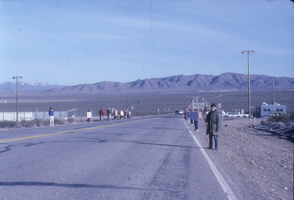
Alain Richard and unidentified protestors on the highway near the Nevada Test Site: photographic slide
Date
Archival Collection
Description
From the Sister Klaryta Antoszewska Photograph Collection (PH-00352). Alain Richard (far right holding a crucifix). (n.d.)
Image

Way of the Cross protestors entering under barbed wire fence at Nevada Test Site: photographic slide
Date
Archival Collection
Description
From the Sister Klaryta Antoszewska Photograph Collection (PH-00352).
Image
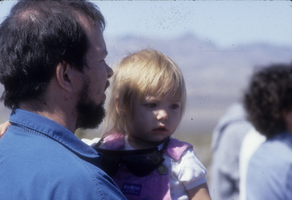
Mr. Holm holding an unidentified child at a Good Friday protest at the Nevada Test Site: photographic slide
Date
Archival Collection
Description
From the Sister Klaryta Antoszewska Photograph Collection (PH-00352).
Image
